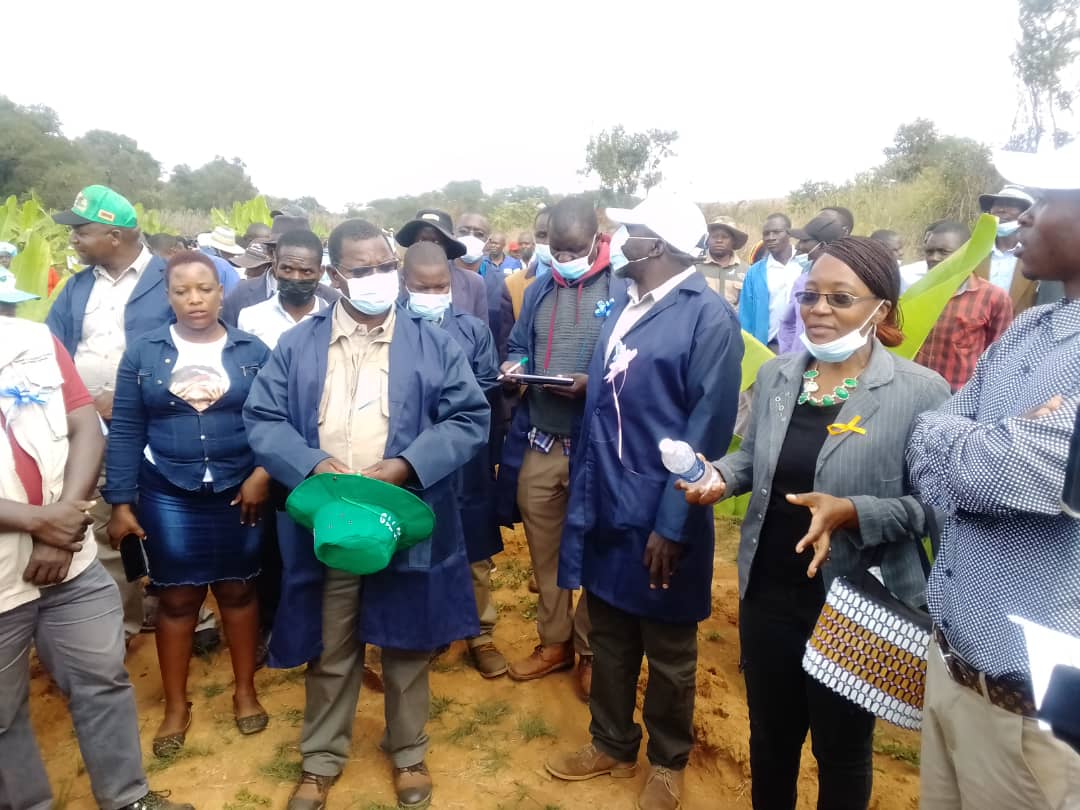|
Getting your Trinity Audio player ready...
|
By Wellington Zimbowa
Famously renowned as the mineral hub of Zimbabwe, Shurugwi ‘s landscape and picturesque surroundings can be a sore sight due to environmental degradation owing to rife mineral activities which in some cases go unchecked.
But it is in this southern part of Zimbabwe, Midlands province where Honde Valley prodigy Mrs. Rujeko Emily Samanga Dube is committed to changing women’s fortunes who are largely excluded from the common mining economic activity through commercial banana farming.
Born and bred in Honde Valley, one of the most conducive horticulture regions in the motherland, Rujeko saw lives being hugely transformed in her childhood area – after villagers graduated from mere production to commercial production.
According to Mrs. Dube, this was after interventions by development agencies through training and capacity-building programmes to rally communities for commercial banana projects.
“As years progressed, villagers in my community got some funding so that they could move from communal banana projects so that they realize notable financial returns through enhanced production pinned on quality and realizing markets.
“They were educated on how to do proper farming so that at least it becomes an income-generating project for them.
They got themselves fully involved and I was part of the learning experience. I saw bananas transforming lives. I fell in love with the project,” she said.
However, as a widow and first-year Adult Education Midlands State University student, seized with the sole upbringing of her school-going children, her dream could have wilted due to financial constraints.
She added: “When l located to the Midlands province upon marriage, my least dream was turning the community into a green belt. For me, green is life. It has always meant life.
“I love people. When l see people, l always try and think of a way to impact their lives. That was how l felt when l became a villager of ward 18 Shurugwi District. As l so desired, the opportunity to turn Midlands into a green belt knocked at my door.”
Hence she undertook some banana training workshops biased toward women, though the uptake not encouraging.
However, the thriving young 650 banana plantation at prominent Shurugwi businessman, Mr. Gara’s homestead in ward 17 is a refreshing energy to Mrs. Dube.
Just last month, the Lands, Agriculture, Fisheries, Water and Rural Development ministry held its provincial Pfumbvudza/Intwasa Field Day at Mr. and Mrs. Gara’s homestead where the pioneer banana project proved topical.
The plantation and project solely belong to the Gara’s, but it was through Mrs. Dube’s tutelage under the close guidance of Agritex workers that it came to fruition.
The Agriculture Ministry’s chief Advisor Professor Anorld Jiri represented permanent secretary Dr. John Basera with several senior officials also in attendance.
“I am saying to women, let’s not just sit and expect the world to do better for us. As boys and men go mining, let’s go into productive farming such as banana farming which is low cost and less intensive. You mainly need water and land then follow the given expert support from Agritex workers,” she said.
Mrs. Dube can be mistaken for an Agritex worker. She gave her banana presentation confidently in front of a multitude and senior Government officials explaining the procedure for the plantation being toured.
“It takes about 9 to 11 months for bananas to start producing.”
She added that the Mr. Gara plantation had a total of 65O plants, grown in August 2021, and only having cost around US$400 in seedling and fertilizer purchases.
She explained that a banana ton can be obtained from about 45 banana plants depending on soil and quality management among other factors while fetching about US$180 on the market.
Encouragingly, banana harvesting comes in cycles. She said as a single plant’s full life span comes in cycles. This translates that the Gara’s are expecting around US$2400 in the first harvest cycle.
Mrs. Dube who opted to convince her locales not by theory but by practice through supporting fellow villagers, says she eyes having a 1000 banana plant field.
However, she notes that much water is needed to fight the cold spell hence a borehole is key.
“I, therefore, managed to erect a borehole at my place but I now I am trying to source about US$1500 for the jet water system needed to water the plantation,” she says.
Seedco, Valley Seeds, and K2 Seeds were some of the present corporates.
Local parliamentarian Hon Nyathi, Tongogara Rural District Councilor Mr. Ncube, and other councilors also attended. Various extension officers, local farmers, and traditional leaders also attended.






